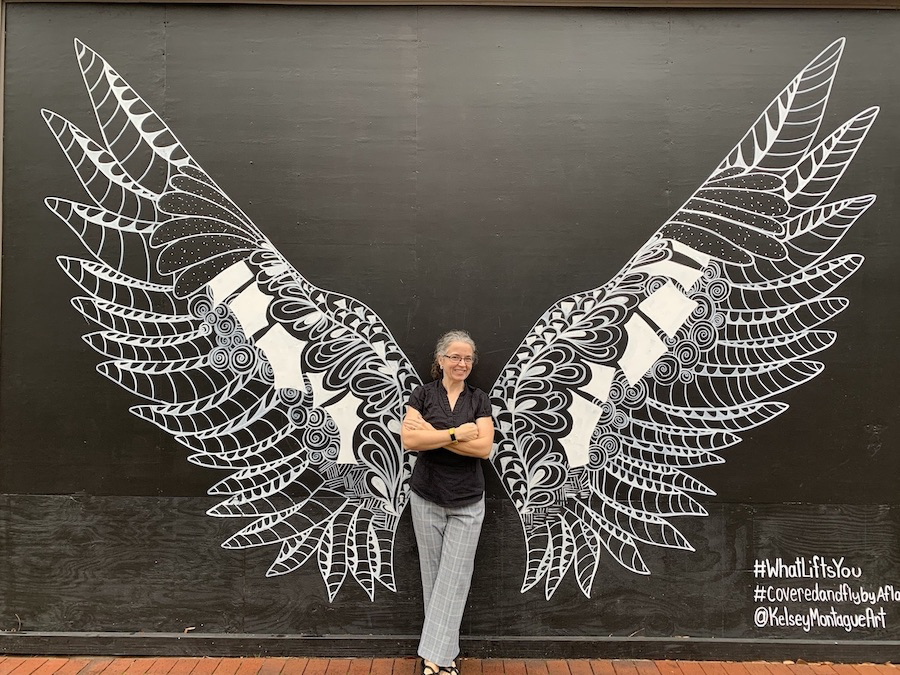
Bio
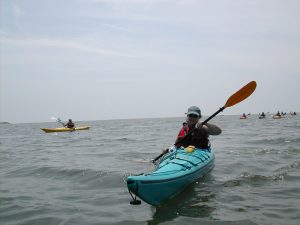 I grew up in Georgia but have lived in the mid-Atlantic area for over two decades. My research in microbial ecology and the structure and function of bacterial communities has taken me from the beaver ponds in northern Canada, to the coastal and inland waters of Georgia and the mid-Atlantic in
I grew up in Georgia but have lived in the mid-Atlantic area for over two decades. My research in microbial ecology and the structure and function of bacterial communities has taken me from the beaver ponds in northern Canada, to the coastal and inland waters of Georgia and the mid-Atlantic in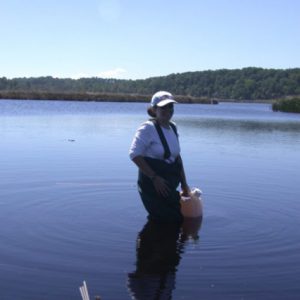 cluding the Patuxent and Anacostia Rivers. I was a Knauss Sea Grant Policy Fellow and did my postdoctoral work at the Academy of Natural Sciences in Philadelphia. My research has been published in several journals including Nature, BioScience, the Journal of the Northern American
cluding the Patuxent and Anacostia Rivers. I was a Knauss Sea Grant Policy Fellow and did my postdoctoral work at the Academy of Natural Sciences in Philadelphia. My research has been published in several journals including Nature, BioScience, the Journal of the Northern American 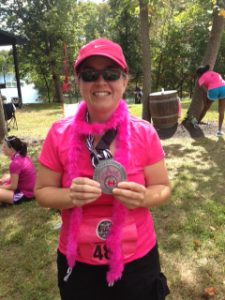 Benthological Society, and the Journal of Environmental Pollution Research. I am very interested in issues related to microbial ecology, sustainability, and public health. I love photography, gardening, outdoor activities, and hanging out with my family.
Benthological Society, and the Journal of Environmental Pollution Research. I am very interested in issues related to microbial ecology, sustainability, and public health. I love photography, gardening, outdoor activities, and hanging out with my family.
Presently I am a full professor at NOVA, the Secretary of the DC Branch of the American Society of Microbiology and an NSF Funded Design Thinking Fellow through NOVA SySTEMic.
Education
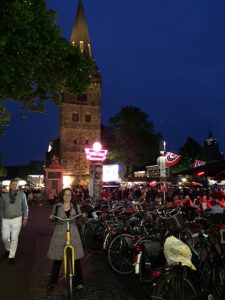
BS with Honors in Microbiology, University of Georgia
PhD, Ecology, University of Georgia
Knauss Sea Grant Policy Fellow
Postdoctoral Position-Academy of Natural Sciences, Philadelphia
Courses Taught
- General Biology I
- General Biology II
- Microbiology
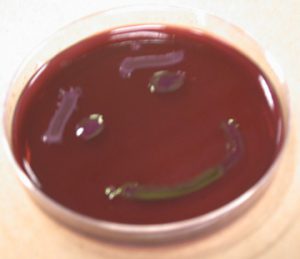
- Ecology
- Water Resources/Hydr
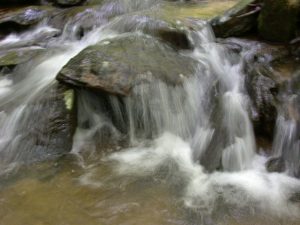 ology
ology 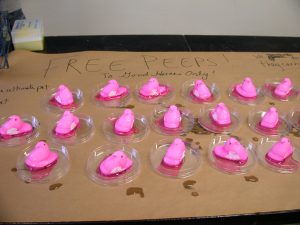 Env. Science
Env. Science- Mech. of Pathogenesis
Syllabi
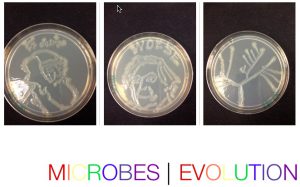
Publications
- Farmer JT, Shimkevitch AV, Reilly PS, Mlynek KD, Jensen KS, Callahan MT, Bushaw-Newton KL, Kaplan JB. 2014. Environmental bacteria produce abundant and diverse antibiofilm compounds. J Appl Microbiol 117:1663-1673.
- Connor, N.P., S. Sarraino, D.E. Frantz, K. Bushaw-Newton, and S.E. MacAvoy. 2014. Geochemical characteristics of an urban river: influences of an anthropogenic landscape. Applied Geochemistry, 47:209-216.
- Bushaw-Newton, K. L., H. Nguyen , and E. C. Ewers. The metabolic and genetic presence of polyaromatic hydrocarbon degrading microbes in the Anacostia River system, Washington, DC. In Prep.
- Bushaw-Newton, K. L., E. C. Ewers, D. J. Velinsky, J. T. Ashley, and S. MacAvoy. 2012. Bacterial community profiles from sediments of the Anacostia River using metabolic and molecular analyses. Environmental Science and Pollution Research. 19: 1271-1279.
- Bushaw-Newton, K.L. 2012. Dam removal. The Encyclopedia of Sustainability.
- MacAvoy, S.E., E. Ewers, and K. L. Bushaw-Newton*. 2009. Nutrients, oxygen dynamics, stable isotopes and fatty acid concentrations of a freshwater tidal system, Washington, D.C. Journal of Environmental Monitoring 11: 1622 – 1628. (*Corresponding author)
- Broderick, E., K. Bushaw-Newton, J. Ward, and K. Kim. 2009. Role of the coral surface microbiota in disease: an in situ test using the Gorgonia-Aspergillus pathosystem. Proceedings of the 11th International Coral Reef Symposium.
- Fortunato, C.S., D. B. Carlini, E. Ewers, and K.L. Bushaw-Newton*. 2009. Nitrifier and denitrifier molecular operational taxonomic unit compositions from a freshwater estuary of Chesapeake Bay. Canadian Journal of Microbiology 55: 333-346.(*Corresponding author)
- Bushaw-Newton, K.L., D. A. Kreeger, S. Doaty, and D.J. Velinsky. 2008. Utilization of Spartina-and Phragmites-derived dissolved organic matter by bacteria and Ribbed Mussels (Geukensia demissa) from Delaware Bay Salt Marshes. Estuaries and Coasts. 31:694-703.
- Velinsky, D.J., K.L. Bushaw-Newton, T.E. Johnson, and D.A. Kreeger. 2006. Changes in riverine chemistry following the removal of a small dam in SE Pennsylvania. Journal of the North American Benthological Society. 25:569-582.
- Ashley, J.T. F., K. Bushaw-Newton, M. Wilhelm, A. Boettner, G. Drames, and D.J. Velinsky. 2006. The effects of small dam removal on the distribution of sedimentary contaminants. Environmental Monitoring and Assessment. 114:287-312.
- Bushaw-Newton, K.L., J.A. Ashley, and D.J. Velinsky. 2005. A process for assessing the ecological effects of a proposed dam removal. Hydro-Review. 24: 36-44.
- Hart, D.D., T.E. Johnson, K. L. Bushaw-Newton, R. Horwitz, and J. E. Pizzuto. 2003. Ecological effects of dam removal: an integrative case study and risk assessment framework for prediction. In Dam Removal Research: Status and Prospects, edited by W. Graf, H. John Heniz III Center for Science, Economics, and the Environment, Washington, D.C. p. 67-80.
- Bushaw-Newton, K.L., D. D. Hart, T. E. Johnson, J. Pizzuto, J. Egan, M. Keeley, J. Lawrence, J. T. Ashley, R. J. Horwitz, D. Charles, C. Gatenby, D. A. Kreeger, T. Nightengale, R. L. Thomas, and D. J. Velinsky. 2002. An integrative approach towards understanding dam removal: the Manatawny Creek Study. Journal of American Water Resources Association. 38:1581-1599.
- Hart, D.D., T.E. Johnson, K.L. Bushaw-Newton, R.J. Horwitz, A.T. Bednarek, D. Charles, D.A. Kreeger, and D.J. Velinsky. 2002. Dam Removal: Challenges and Opportunities for Ecological Research and River Restoration. BioScience. 52: 669-681.
- Bushaw-Newton, K.L. and Sellner, K.G. 1999 (on-line). Harmful Algal Blooms. In: NOAA’s State of the Coast Report. Silver Spring, MD: National Oceanic and Atmospheric Administration.
- Bushaw-Newton, K. L. and M. A. Moran. 1999. Photochemical formation of biologically available nitrogen from dissolved humic substances in coastal marine systems. Aquatic Microbial Ecology. 18: 285-292.
- Bushaw, K. L., R. G. Zepp, M. A. Tarr, D. Schulz-Jander, R. A. Bourbonniere, R. E. Hodson, W. L. Miller, D. A. Bronk, and M. A. Moran. 1996. Photochemical release of biologically available nitrogen from aquatic dissolved organic matter. Nature. 381: 404-407.
Professional Meeting Presentations (Recent)
- Bushaw-Newton, K.L., M. Vander Maten, and R. Johnson. 2019. Putting Community in Community College. VCCS New Horizons Conference, Roanoke, VA.
- Bushaw-Newton, K.L. 2015. Engaging students in the sciences, the community college experience. Fall Meeting of the American Geophysical Union, San Francisco, CA. Invited Oral Presentation.
- Bushaw-Newton, K.L. 2014. Profiles in urban streams: bacterial communities in the Anacostia River system. Annual Meeting of the American Water Resources Association., Tysons Corner, VA. Oral Presentation.
- Bushaw-Newton, K. L., C. Bentley, and S. Jaye. 2012. Developing Research experiences for Community College Students : Expectations, Limitations, Logistics, and Successes. Unique research experiences for two year college faculty and students. July, Washington, D.C. Oral Presentation.
- Sarraino, S., D. E. Frantz, K. Bushaw-Newton, and S.E. MacAvoy. 2011. Biogeochemical characteristics of a polluted urban stream (Anacostia River, Washington DC, USA): inorganic minerals, nutrients and allochthonous vs. autochthonous production. American Geophysical Union Annual Meeting.
- Bushaw-Newton, K. L. and Evan Ewers. 2008. Presence and metabolic activities of bacteria that degrade polycyclic aromatic hydrocarbons in sediments of the Anacostia River. Atlantic Estuarine Research Society annual fall meeting. November. Oral Presentation.
- Ewers, E. and K. L. Bushaw-Newton. 2008. Polycyclic aromatic hydrocarbon-degrading bacteria in the Anacostia River, Washington, DC: presence and metabolic capabilities. American Society of Microbiology Annual Meeting. June, Boston, MA. Poster.
- MacAvoy, S. E. Ewers, and K. L. Bushaw-Newton. 2007. Biogeochemical snapshot of an urban water system: The Anacostia River, Washington DC. American Geophysical Union Annual Meeting. December, San Francisco, CA. Oral Presentation.
- Fortunato, C. and K. L. Bushaw-Newton. 2007. Assessing the Nitrogen Processes of a Freshwater Tidal Estuary through Microbial Community and Nutrient Composition. Estuarine Research Federation Annual Meeting, November, Providence, RI. Oral Presentation.
Presentations-Invited
- July 2021-The Rotary Club-Antimicrobial Resistance
- June 2021-Lifetime Learning Institute-Antimicrobial Resistance.
- January 2021-Lifetime Learning Institute-Plagued by Plagues, Notable Pandemics Through History.
- August 2020-Night of Science special lecture, The Immune System and COVID-19.
- February 2020-Lifetime Learning Institute-What Could Go Wrong? with Drs. Beth Schomber and Kristen Simmons.
- April 2019-Lifetime Learning Institute-Can I Trust Their Science? Evaluating the Validity of Science Presented in Popular Media with Drs. Beth Schomber and Kristen Simmons.
- May 2018-Lifetime Learning Institute-GMO vs Organic: The Science and Policy Behind the Terms with Drs. Beth Schomber and Kristen Simmons.
- April 2017-Lifetime Learning Institute-Microbial Products People Love with Drs. Beth Schomber and Kristin Simmons.
- October 2016-Lifetime Learning Institute lecture-The Gut Microbiome
- April 2016-Lifetime Learning Institute lecture-Of Microbes and Men
- March 2016-Engaging women in STEM, STEMTASTICS 2016 sponsored by the American Association of University Women, Annandale, VA
- September 2012-Research Seminar, Math, Science, and Engineering, NVCC, Annandale, VA
- April 2011-Research Seminar, US Geological Survey, Reston, VA
- April 2008-Research Seminar, Department of Biology, Howard University, Washington, DC.
- April 2005-Plenary Presentation. Symposium on New Currents in Conserving Freshwater Systems sponsored by the American Museum of Natural History Center for Biodiversity and Conservation. New York City, NY. April 2005
- August 2003-Expert Panel, Biological effects of dam removal, American Society of Civil Engineers special meeting on Dams and Dam Removal, Baltimore, MD.
- January 2002-Institute of Ecosystem Studies, Milbrook, NY
Resources
Scholarship Info for NOVA Students! The Northern Virginia Educational Foundation has several scholarships for NOVA students https://www.nvcc.edu/foundation/scholarship.html
Check out our Science Seminar Program and other community outreach events such as our very popular K-12 Night of Science.
COVID-19 INFO: http://blogs.nvcc.edu/scienceseminar/covid-19-resources/
